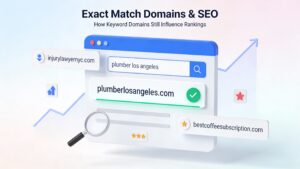Table of Contents
ToggleThe Truth About SEO Audits in 2025: What Actually Matters
If you’ve been in SEO long enough, the phrase “SEO audit” probably makes you sigh. Every agency claims to have a “proprietary audit process,” but in reality, most of these reports are glorified checklists — crawl errors, missing meta tags, maybe a Lighthouse score.
A proper SEO audit in 2025 isn’t about fixing a list of issues; it’s a strategic diagnostic. It’s about understanding how Google perceives your site’s relevance and trust compared to your competitors. Audits should uncover why rankings behave the way they do, not just what is broken.
1. Technical Health Still Matters, But Only to a Point
Technical SEO is foundational — not magical. The basics still apply: ensure Google can crawl and index the right pages, that sitemaps are current, and that no canonical conflicts or redirect chains exist.
Key checks include:
-
Crawlability across all key pages
-
Redirect logic and canonical consistency
-
Robots.txt and XML sitemaps properly configured
-
HTTPS and structured data functioning as expected
Crawlability
Dave’s Notes: Crawlability just means that Google can access your pages. Don’t worry about crawl budgets, or pruning content which can make things worse. Most audits should stop here — they treat technical SEO as the end instead of the foundation. Once your site is fully crawlable and consistently indexed, every further optimization usually provides diminishing returns. Technical SEO gets you qualified to rank; it doesn’t win the race on its own.
2. Google Isn’t Grading Checklists — It’s Assessing Perception
Google’s ranking system doesn’t look for compliance; it models human perception. That means the real audit targets signals that shape how Google interprets your authority, topical depth, and trustworthiness.
Instead of chasing “scores,” focus on these perception-based signals:
-
Topical strength: Regular, consistent publishing around defined keyword clusters.
-
Entity connections: Mentions from authoritative, context-rich sites that validate your brand’s presence.
-
Backlink context: Quality over quantity. Evaluate why a site links to you — context matters more than DA.
-
SERP parity: Analyze the structure of top competitors. Learn what kind of content Google surfaces for your topics.
In essence, a great SEO audit assesses your site as a living, interconnected entity — not a page-level checklist.
3. Audit Your Content the Way Google Reads It
Google doesn’t “read” content like humans. It processes patterns — entities, relationships, and contextual relevance.
A strong content audit includes:
-
Cluster mapping: Identify main topics and subtopics, ensuring internal links form a logical network.
-
Keyword intent checks: Confirm each page targets the proper intent — informational, transactional, or navigational.
-
Semantic completeness: Benchmark your topic coverage against competitors using NLP or content-gap tools.
-
Content pruning: Consolidate overlapping articles and remove thin or outdated posts.
Content audits reveal which assets reinforce your topical authority and which dilute it. The goal isn’t more content — it’s better-organized content.
4. The Real SEO Audit Output: A Strategy, Not a Spreadsheet
The worst audits are data dumps — long technical documents that never lead to implementation. The best audits prioritize action.
Effective SEO audits group findings into:
-
Critical fixes — technical blockers affecting indexation or rendering.
-
Structural gaps — internal linking and content ecosystem improvements.
-
Authority plays — external reputation and content amplification opportunities.
Every finding should include both what needs fixing and why it matters. The deliverable isn’t a static report; it’s a roadmap aligned with business growth and search visibility.
5. Lessons from Reddit’s SEO Thinkers
Seasoned SEO pros in Reddit’s r/SEO community emphasize an experimental, data-first mindset. They cut through myths — the kind agencies recycle — and focus on what moves rankings sustainably.
Some of their best insights:
-
Stop obsessing over perfect Core Web Vitals; fix what’s broken and move on.
-
EEAT isn’t something you “add”; it emerges naturally from consistent, expert-driven publishing.
-
Backlinks should be built through useful relationships, not volume campaigns.
-
SEO strategies should evolve from data gathering — not template audits.
This mindset results in audits that uncover why content works and how authority manifests online, rather than chasing arbitrary metrics.
6. Automation and Reporting: Simplify, Don’t Overwhelm
Automation is useful for data collection, but not for decision-making.
Use tools like Google Search Console, GA4, and your crawler of choice to feed structured data into dashboards — but analyze trends manually. Combine crawl data with performance metrics and content engagement to form actionable insights.
A modern SEO audit is an ongoing process. Revisit it quarterly to evaluate how your site structure and content are responding to algorithm updates and competitor shifts. Treat your site like a living system, not a static project.
The Takeaway
SEO audits in 2025 are no longer about fixing HTML tags or chasing checklists. They’re about interpreting signals — translating how Google perceives your site’s trust, expertise, and satisfaction value for users.
Think diagnosis, not compliance. Think relationships, not rankings.
The sites that understand how Google interprets their story will survive every core update that follows.
Stop chasing the crawl report ghosts — start diagnosing your digital narrative.





